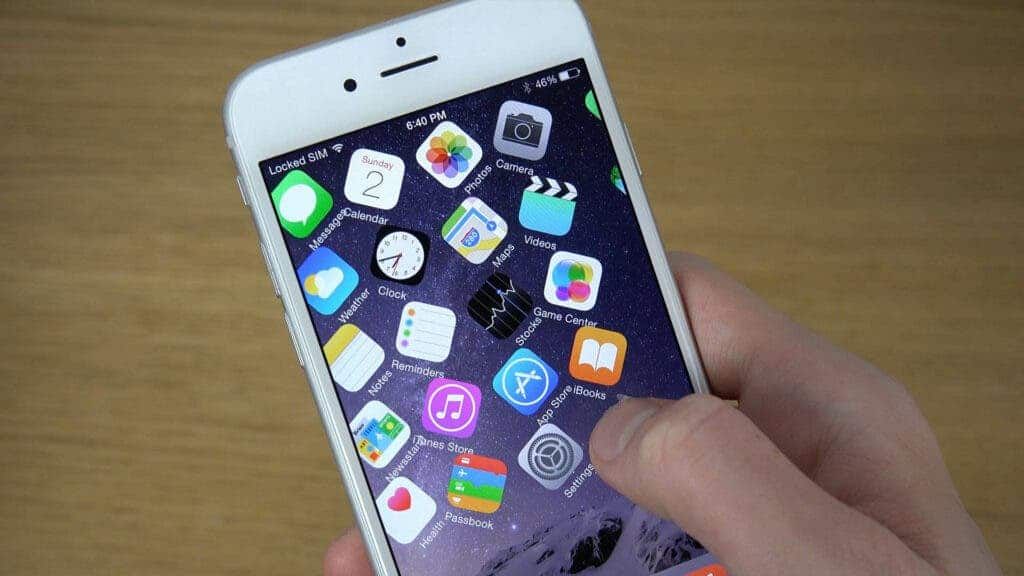American technology giant, Apple, has a very positive public face in the market. However, most of Apple's success comes from its smartphone business. The iPhone usually sells so well that the industry barely recognizes any failures in Apple's other businesses. According to reports, in the latest quarter, iPhone sales performance is strong. However, behind this glorious performance, Apple is experiencing some hidden worries. On the face of it, Apple delivered a surprise quarterly report last week, instilling confidence in the market, especially given the supply chain challenges it faces, the economic downturn and the lingering fallout from the pandemic.

Apple's third-quarter revenue of $83 billion was in line with Wall Street expectations. The iPhone sales was particularly strong, with revenue of $40.7 billion in the quarter, beating many analysts' expectations. The company also said it had predicted that supply chain hurdles would hit up to $8 billion in revenue, but that now appears to be an exaggeration. However, the good news ends there.
Mac, iPad and wearables record strong decline in revenues
Apple's other three major products - the Mac, iPad and wearables - all experienced year-over-year revenue declines. While the iPad beat analysts' expectations, the Mac and wearables fell well short of expectations. Previous analysis claims that the decline of Mac was expected. The real surprise was that analysts didn't predict such a decline.
The MacBook Air and MacBook Pro are Apple's two most popular Macs. Sales of the two devices may have been stagnant for nearly four weeks during the quarter. That's because the M2 versions of the MacBook Air and MacBook Pro were released on June 6, but didn't go on sale until a few weeks later. The MacBook Pro did not sell until June 26 while the MacBook Air did not hit the shelves until July 15.
The delay in the launch of the two Macs means that sales of Apple's best-selling notebook have come to a screeching halt. The result: Mac sales in the fiscal third quarter were down about $1 billion from a year earlier. It is worth mentioning that more people will buy home office equipment in 2021 than this year.
iPhone sales are good but Mac is not impressive
Mac sales are expected to rebound next month, and some commentators remain optimistic about the category. The latest quarter's problems may only be temporary, and it's unlikely that Mac will enter a downtrend here.
The MacBook Pro and MacBook Air should grow substantially in the fiscal fourth quarter. Apple will provide further growth momentum with the release of a new Mac mini and high-end MacBook Pro later this year. Next year will also see a new Mac Pro, iMac and 15-inch MacBook Air.
Compared to the Mac, the real concern is the iPad and Apple's tablet supply chain woes for several quarters. Allegedly, many consumers have been unable to find the iPad they want in retail stores over the past year. Industry insiders believe that Apple's iPad Air and iPad Pro are a bit too similar, confusing many consumers. The iPad Pro's inadequacies in multitasking are also a downside.
In its quarterly report, Apple blamed lower iPad Pro sales for the category decline. Over a longer period of time (the past nine months), the company blamed lower sales of the 10-inch iPad and iPad Air for the stagnant growth. However, the company doesn't appear to be experiencing demand issues, with supply shortages the main reason.
Apple wearable is declining
More worrying is Apple's wearables and accessories business, which includes the Apple Watch, AirPods, Beats headphones, HomePod and Apple TV. While Apple’s other categories have also been hit by supply chain issues, the Russia - Ukraine conflict and chip shortages, the company’s CEO, Tim Cook, went out of his way to highlight the economic impact of wearables.
He described the impact of "various headwinds" on the sector, including "macroeconomic shocks". In other words, people are spending less on these products because they are worried about the economy. However, Tim Cook said that's not the case with iPhone sales and other devices.
Cook points out that AirTag, which was launched in the same period last year, may be one of the reasons for the decline in the year-on-year data. They also upgraded Apple TV in the third fiscal quarter of 2021. But that may not be enough to explain the division's year-over-year revenue decline of $750 million. More signals have surfaced recently amid reports that Apple plans to slow hiring and spending plans in some categories.
Cook said in an interview with Bloomberg Television that while the company will continue to hire and invest in the downturn, it will be more "thoughtful" going forward. Maybe it's just a PR rhetoric that really means: "Yes, we're going to slow spending because we're not sure where the economy is going in the next few months."
Apple staff growth is abysmal
According to reports, Apple has already slammed on the brakes internally. Staff growth will be compressed as much as possible, and sometimes zero growth. Furthermore, operating expenses (reported under "R&D" and "General") will also grow close to zero after adjusting for inflation.
This is in stark contrast to previous years. Since at least 2009, Apple has added between 5,000 and 12,000 employees a year. Its operating expenses are also growing rapidly, at least $4 billion annually over the past five years. While Apple is still investing in key areas such as augmented reality and artificial intelligence, it is unlikely to cut jobs as massively as other tech giants. However, the reality is clear, Apple is experiencing a slowdown in growth.






Place comments
0 Comments
You are currently seeing only the comments you are notified about, if you want to see all comments from this post, click the button below.
Show all comments